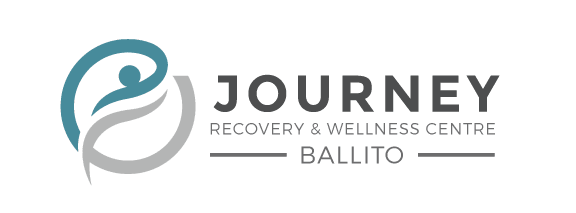
SHAME AND GUILT IN ADDICTION
Individuals ensnared by substance addiction or certain behaviors often grapple with profound feelings of shame and guilt. These emotions stem from their conduct, the pain and harm inflicted upon their loved ones, and the fervent desire to “just stop” yet struggling to attain that seemingly simple goal. The burden of feeling “defective” lingers, a realization that they can’t partake in drinking like others and halt before it spirals out of control. This sense of shame and guilt fuels the very addiction it seeks to alleviate. It initiates a relentless cycle: the more intense their guilt, the more substances they consume to numb those emotions. Paradoxically, this only perpetuates the cycle of self-abuse and harm inflicted upon others. Breaking this cycle often involves addressing these feelings and seeking professional help to navigate through the complex interplay of emotions and addiction.

Core beliefs
For many individuals struggling with addiction, the emotions of shame and guilt are all too familiar, predating the onset of addiction itself. These sentiments often originate from deeply ingrained core beliefs that took root during childhood. Shame tends to take hold in childhood when we’re told phrases like “you should do better,” “why can’t you excel in school like others?” or “why can’t you behave as well as so-and-so?” Even minor missteps are treated as grave offenses, instilling in us the notion that we must achieve a state of perfection to earn love. This condition breeds in the shadows; when love appears to hinge on perfection, any perceived imperfection seems like a beacon of shame.
A child’s comprehension is limited, making it difficult to discern that no one is truly flawless. Such messages are often internalized as abandonment, a declaration that they’re undeserving of affection unless they attain an unattainable standard. Though this perspective might not align with reality, for a child, it feels unquestionably real. Over time, this notion becomes deeply embedded in their self-perception and shapes how they view themselves. Recognizing these origins and addressing them in therapy can be pivotal in breaking the cycle of shame and addiction.

Seeing yourself as unworthy
The foundation of shame and guilt often lies in the conviction of being unworthy. It’s a belief that permeates through various aspects—feeling unworthy of care, happiness, success, and even love. When these core needs are considered out of reach, receiving them can lead to a sense of dishonesty, as if you’re cheating your way into something undeserved. This can inadvertently set off a self-destructive cycle, where you create circumstances that confirm the belief that you don’t merit these essentials.
Your distorted self-esteem functions as an excuse, continually reminding you of your perceived lack of worthiness. This reinforces the notion: “I was right all along, I don’t deserve love or care because I’m fundamentally flawed.” This self-perpetuating cycle is further exacerbated by the belief that if you truly are so “bad,” the idea of change seems unfathomable. Recognizing and addressing these deeply ingrained beliefs is a significant step towards dismantling the cycle of shame, guilt, and addiction. Therapy and support can help reshape your self-perception and open the door to the possibility of change and self-worth.

The difference between shame and guilt
Shame and guilt are distinct emotions, each with its own characteristics. Shame is deeply ingrained, often tracing back to fundamental beliefs about oneself. It can manifest in various forms—such as rage, fear, controlling behaviors, depression, or emotional numbness. Shame centers on the self, stemming from the belief that if others were privy to your inner feelings, they would expose your perceived defects. This prompts a need to conceal that part of yourself. Shame is closely tied to distorted self-esteem and can create a sense of entrapment within these negative emotions.
Guilt, on the other hand, is linked to actions. It arises when we engage in behavior that goes against our values, morals, or established rules. Guilt surfaces when we, for instance, misuse substances and harm our loved ones. Unlike shame, guilt pertains to a specific action rather than the individual as a whole. Recovery entails learning that there are choices available to us. It’s about acknowledging and taking responsibility for those choices, and finding ways to grow beyond the weight of shame and guilt.
“Shame dies when stories are told in a safe place” – Ann Voskamp

Shame operates in a manner that seeks to shield itself from exposure. The act of opening up and sharing your emotions can appear formidable and intimidating. It evokes feelings of vulnerability and a loss of control. Consequently, the instinctual response is to remain loyal to this emotion—it has served as a protective mechanism, preserving your survival. But genuine healing emerges when you permit yourself to divulge your innermost feelings, including your shame, and embrace yourself for who you are, acknowledging that imperfection is inherent.
Through this process, you embark on a journey of self-discovery, challenging your self-beliefs and uncovering your true worth. As you learn to trust and believe in your intrinsic goodness and capacity for transformation, healing unfurls. In recovery, you might encounter a sense of well-being previously unfamiliar to you—a tranquility and self-acceptance that pave the way for positive change and growth. Approach yourself with gentleness, especially when mistakes are made. Embrace accountability for your actions and practice self-compassion. Release the grip of harsh perfectionism and welcome serenity, peace, and healing into your life.

GET IN TOUCH
PHONE
24/7 Contact: +27 79 465 4556
Yonit: +27 82 447 6727
EMAIL
admin@journeycentre.co.za
yonit@journeycentre.co.za
ADDRESS
16 Douglas Crowe Drive, Dolphin Coast,
Ballito